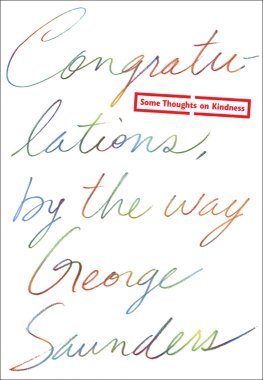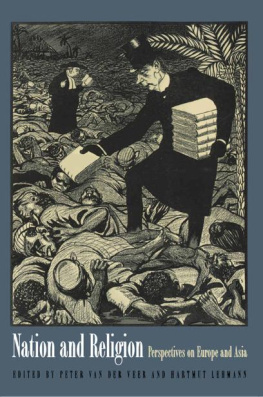First published in 1990 by the Academic Division of Unwin Hyman Ltd
This edition first published in 2021
by Routledge
2 Park Square, Milton Park, Abingdon, Oxon OX14 4RN
and by Routledge
52 Vanderbilt Avenue, New York, NY 10017
Routledge is an imprint of the Taylor & Francis Group, an informa business
1990 P. Saunders New Preface 2021 P. Saunders
All rights reserved. No part of this book may be reprinted or reproduced or utilised in any form or by any electronic, mechanical, or other means, now known or hereafter invented, including photocopying and recording, or in any information storage or retrieval system, without permission in writing from the publishers.
Trademark notice: Product or corporate names may be trademarks or registered trademarks, and are used only for identification and explanation without intent to infringe.
British Library Cataloguing in Publication Data
A catalogue record for this book is available from the British Library
ISBN: 978-0-367-64519-9 (Set)
ISBN: 978-1-00-313856-3 (Set) (ebk)
ISBN: 978-0-367-68362-7 (Volume 18) (hbk)
ISBN: 978-1-00-313717-7 (Volume 18) (ebk)
Publishers Note
The publisher has gone to great lengths to ensure the quality of this reprint but points out that some imperfections in the original copies may be apparent.
Disclaimer
The publisher has made every effort to trace copyright holders and would welcome correspondence from those they have been unable to trace.
Preface to the Re-issue of 2021
The fieldwork on which this book was based was carried out in 1986, and the book itself was published in 1990. I wrote it because I was convinced that the spread of home ownership through the middle class and deep into the working class during the twentieth century had transformed British society. I still believe this to be the case. However, in the twenty-first century, this home ownership revolution has stalled, and has even begun to unravel.
While the core of what I argued in 1990 remains valid, it is important to recognise now the book is being re-issued that something important has changed in the thirty years since it first came out. In this preface I draw on a report I wrote in 2016 for the London think-tank, Civitas, to identify what has happened and how problems might be put right.1
In the book as published in 1990 I documented the enormously significant impact of mass home ownership on British society, economically, politically and culturally.
Economically, I showed how it has enabled millions of ordinary people to accumulate substantial wealth for the first time in the countrys history, and to pass this on to their children. Home ownership has literally given working people a stake in the capitalist system, for as our economy has grown over the years, so the real value of housing assets has grown with it. Owning a house has been like owning a share certificate in UK plc. Working people have accumulated more capital from owning a house than most could ever have hoped to save from a lifetime of earnings.
This has had a significant impact politically. Social class no longer underpins national voting patterns in the way that it once did. Other sources of identity have displaced it, and one of these is housing tenure. Margaret Thatchers Conservatives won working class votes in the 1980s by allowing a million council tenants to buy their homes, and John Majors Conservatives lost them when a million home-owners found themselves in negative equity in the 1990s. Governments have learned from this. They know they cannot afford to alienate the home-owner vote.
Most importantly, mass home ownership has also had important cultural and psychological effects. Owning your own home creates pride in achievement, a feeling of autonomy and an enhanced sense of security. It allows people to express themselves through the work they do on their homes. And notwithstanding claims from the political left that it encourages individualism and undermines solidarity, my research showed that it encourages a spirit of self-reliance which actually strengthens community ties.
All of this remains as true today as when this book was first published. But two important things have changed.
The first is that home ownership is no longer increasing in Britain. Indeed, since the turn of the century it has gone into reverse. Owner-occupation peaked at around 70 per cent of households in 2000, but since then it has fallen five percentage points, and among the under-forties it has dropped quite dramatically. When I wrote this book, Britain boasted one of the highest home ownership rates in the western world. Today we are near the bottom of the league.
This is not because young people no longer want to buy their homes. They do. Studies by the Council of Mortgage Lenders, the British Social Attitudes Survey and Halifax bank all agree that the aspiration to own a home is higher today than it was in the 1980s. However, among young people it is now tempered by the realistic recognition that they may never achieve it. The reason home ownership rates have fallen is not because of a change in peoples preferences; it is because it has become so much more expensive to buy a house.
This links to the second major change since 1990, which is that younger people trying to enter the market are now having to pay a lot more, relative to their earnings, than earlier generations did. Existing owners are still enjoying capital growth, but now it is at the expense of their children and grandchildren. This didnt use to be the case.
House prices in Britain rose faster than the general rate of inflation for more than 50 years, and this created significant capital gains for several generations of owners. But until the late 1990s, these gains did not come at the expense of new generations of buyers because average house prices and average earnings increased at similar rates. Although the price of houses rose relative to other commodity prices, the cost of housing remained constant relative to what people were earning. This explains how existing owners made gains, yet houses remained no more expensive for new generations to buy than they had been for their parents. This link between average house prices and average earnings has now been broken.
There have been four big house price booms in Britain since 1970. In the first three (1971-73, 1977-79 and 1987-89) house prices soon fell back into line with earnings. But in the fourth boom, which began in the late nineties, this never happened. Between 2000 and 2014, average earnings rose by 51 per cent, but average house prices rose by 132 per cent. The result is that the younger generation is now expected to pay a much bigger multiple of its earnings to buy a home than its parents did.
Some young people can still afford to pay these much higher prices because interest rates have been at historically low levels since the 2008 global financial crisis. But new buyers are taking out huge loans to purchase property which by my reckoning is 20 or 30 per cent over value. With inflation so low, these loans will take many years to clear and will become crippling if and when interest rates return to normal levels. Meanwhile, new lending rules since 2008 require huge deposits which few borrowers can provide without assistance from family, the government, or both.











